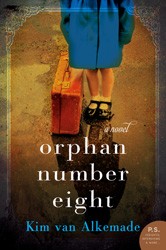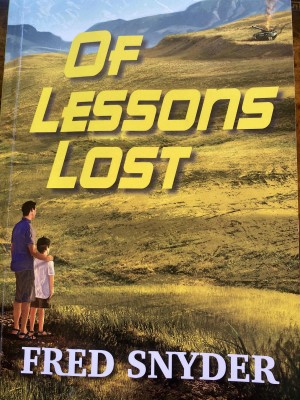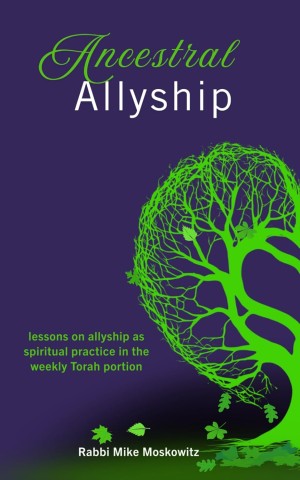The title of Kim van Alkemade’s novel, Counting Lost Stars, seems like an oxymoron, juxtaposing loss and beauty. Why did she choose it? Perhaps because during the Nazi regime, persecuted Jews were forced to wear yellow stars that distinguished them from their non-Jewish neighbors — and because victims of the Holocaust have since been analogized to shining stars. But who is counting them? How exactly were they lost? Can they be redeemed from their annihilation?
Van Alkemade’s novel relates how the Nazis used computer codes to help track down their Jewish prey. With small holes punched into cardboard, they counted out the Jews — not only in Germany, but in all the countries they conquered, including Holland, where the heart of this book lies. As the author shows, the process of documenting Jewish people, down to the last infant, relied on the collaboration of Dutch citizens, many of whom enabled genocide through this simple use of punch cards. Van Alkemade compares the procedure to the country’s earlier use of electronic tabulations to count livestock, and to organize businesses in which “items” needed to be accounted for. But here, of course, the items were human beings, reduced to a small hole in a piece of paper. These people, the Jews of Holland, were sent to the concentration camp of Westerbork, and then on to the far more deadly Auschwitz, where most of them died.
Different columns on the cards denoted not only Jews themselves, but also the manner of their “disappearance,” which, for purposes of maintaining Nazi aesthetics (another oxymoron), was never actually called “death.” One hole would be punched for disease, another for the gas chamber, still another for simply collapsing. Anne Frank and her sister Margot, who both succumbed to typhus, would have received the same hole-punch, heaped with a tragic meaning that wouldn’t be legible to the layperson.
Like Anne herself, the main characters in this novel are unforgettable. Especially salient are Cornelia, a Dutch punch-card operator who helps her close Jewish friend survive, and her rules-bound father, who assists the Nazis as a means of survival all while refusing to acknowledge that he is an accomplice to mass murder. In a plot that occurs fifteen years after the war, van Alkemade introduces Rita, a Jewish American woman. Educated at Barnard and then in Columbia’s Watson computer course, her growing knowledge of coding enables her to find the lost names and faces that those cryptic dots intended to conceal.
Several years ago, a well-regarded book, IBM and the Holocaust, revealed the extent to which this ubiquitous, seemingly harmless company was complicit in the murder of millions. Unable to trade with Germany directly, IBM sent essential materials to Switzerland instead — and from there, these insidious technological machines traveled to Holland and all over Europe. Van Alkemade, born to a Dutch father and a Jewish American mother, does not merely repeat these shocking facts. She brings them to life, putting faces to the actors who reduced millions of Jews (and other so-called “undesirables”) to mere statistics. She also casts light on heroes who sought to reveal the truth, proving that it is never too late to seek justice.
Kim van Alkemade is herself a hero. In her illuminating book, stars are counted and stars are lost. But they are also immortalized and redeemed.





